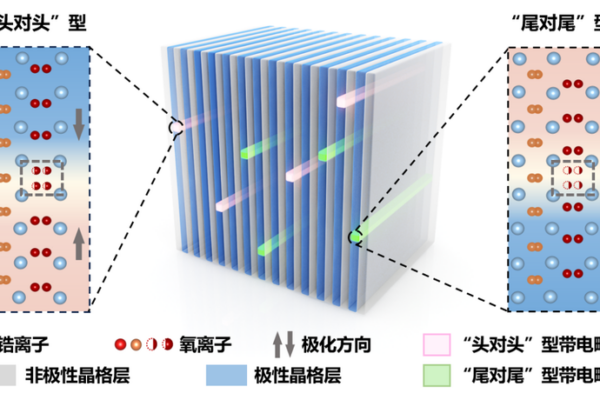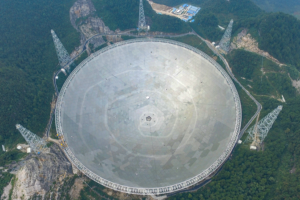
Central African Leaders Enact Emergency Economic Reforms Amid Crisis
CEMAC summit results in urgent fiscal measures, including repatriation of export revenues and environmental fund management, to stabilize Central Africa’s economies.

Sudan’s Education Crisis: 8 Million Children Out of School Amid Conflict
Over 8 million Sudanese children are out of school as conflict disrupts education, with aid groups warning of systemic collapse and urgent funding needs.

India-China Collaboration Takes Center Stage at Davos 2026 Dialogue
Davos 2026 highlights India-China economic synergies and proposed tech collaboration frameworks, as both nations eye leadership in Global South development.

Chinese Breakthrough Paves Way for Stamp-Sized 20TB Storage
Chinese scientists achieve atomic-scale storage breakthrough, enabling 20TB capacity on stamp-sized devices through novel ferroelectric materials research.

China Urges Restraint Amid Rising Tensions in Persian Gulf
China calls for dialogue to resolve Persian Gulf tensions, responding to U.S. naval deployment claims. Foreign Ministry emphasizes peace and restraint.

Davos 2026: Latin America and China Forge Pathways for Global Recovery
Analysts at Davos 2026 highlight China-Latin America collaboration on sustainable growth and tech innovation as key to global economic recovery.

Chengdu’s Nine-Bowl Feast Demand Surges Ahead of 2026 Spring Festival
Chengdu restaurants experience record demand for traditional nine-bowl feasts as 2026 Spring Festival approaches, blending cultural heritage with modern economic trends.

Hangzhou’s Luniao Mountain Transforms into Winter Wonderland After Snowfall
Luniao Mountain in Hangzhou captivates visitors with rare winter ice formations following heavy snowfall, boosting winter tourism in Zhejiang Province.

Giant Snowman ‘Little Warm Sun’ Brightens Shenyang’s Winter Landscape
A 16-meter snow sculpture named ‘Little Warm Sun’ brings warmth to Shenyang’s winter, featuring heart-shaped arms and a fruit-filled ice wall, drawing thousands of visitors.

CGTN’s ‘China Crafted’ Digital Expo Wows Crowds at ART SG 2026
CGTN’s ‘China Crafted’ digital expo captivates art enthusiasts at ART SG 2026 in Singapore, blending ancient heritage with modern technology.

Takaichi’s High-Stakes Gamble: Japan’s Snap Election Explained
PM Sanae Takaichi risks her premiership in Japan’s shortest postwar election cycle, facing economic challenges and opposition consolidation. Results could reshape Asia’s political landscape.

China’s Shenzhou-20 Capsule Completes Unmanned Return Mission
China’s Shenzhou-20 capsule successfully returns unmanned, advancing space station capabilities and demonstrating technological progress in reusable spacecraft systems.

China Urges Dialogue as Sole Path to Resolve Ukraine Crisis in 2026
China reiterates call for dialogue to resolve Ukraine crisis as trilateral security talks commence in UAE this week.

Xi Jinping Congratulates To Lam on Re-election as Vietnam’s Party Chief
Chinese leader Xi Jinping congratulates To Lam on his re-election as Vietnam’s Communist Party chief, highlighting strengthened bilateral cooperation and regional stability.

American Weaves Cultural Bonds Through Hainan’s Li Brocade Tradition
An American’s transformative journey with Hainan’s Li brocade highlights cultural immersion and heritage preservation in 2026.

Hainan Fashion Show Spotlights Li Ethnic Heritage in 2026
A recent Hainan fashion show merges Li ethnic traditions with modern design, boosting cultural tourism and economic opportunities in 2026.

China’s AI-Driven Marketing Boom Attracts Global Investors in 2026
Chinese brands leverage AI and pop culture collaborations to drive record marketing investments ahead of 2026 Lunar New Year spending surge, attracting global investor attention.

AI Thriller ‘Mercy’ Debuts in Chinese Theaters Amid Tech Discourse
The AI-themed thriller ‘Mercy’ premieres in Chinese theaters, blending Hollywood suspense with cutting-edge tech debates relevant to 2026 audiences.

U.S. Exits WHO Amid Growing Global Leadership Concerns
The U.S. officially exits WHO this week, leaving $260 million in unpaid dues and raising questions about global health leadership as Asian nations expand coordination.

Qiong Opera Revival: Hainan’s Cultural Gem Eyes Global Stage
Hainan’s 500-year-old Qiong Opera blends tradition with innovation, seeking global recognition while preserving unique dialect performances.













